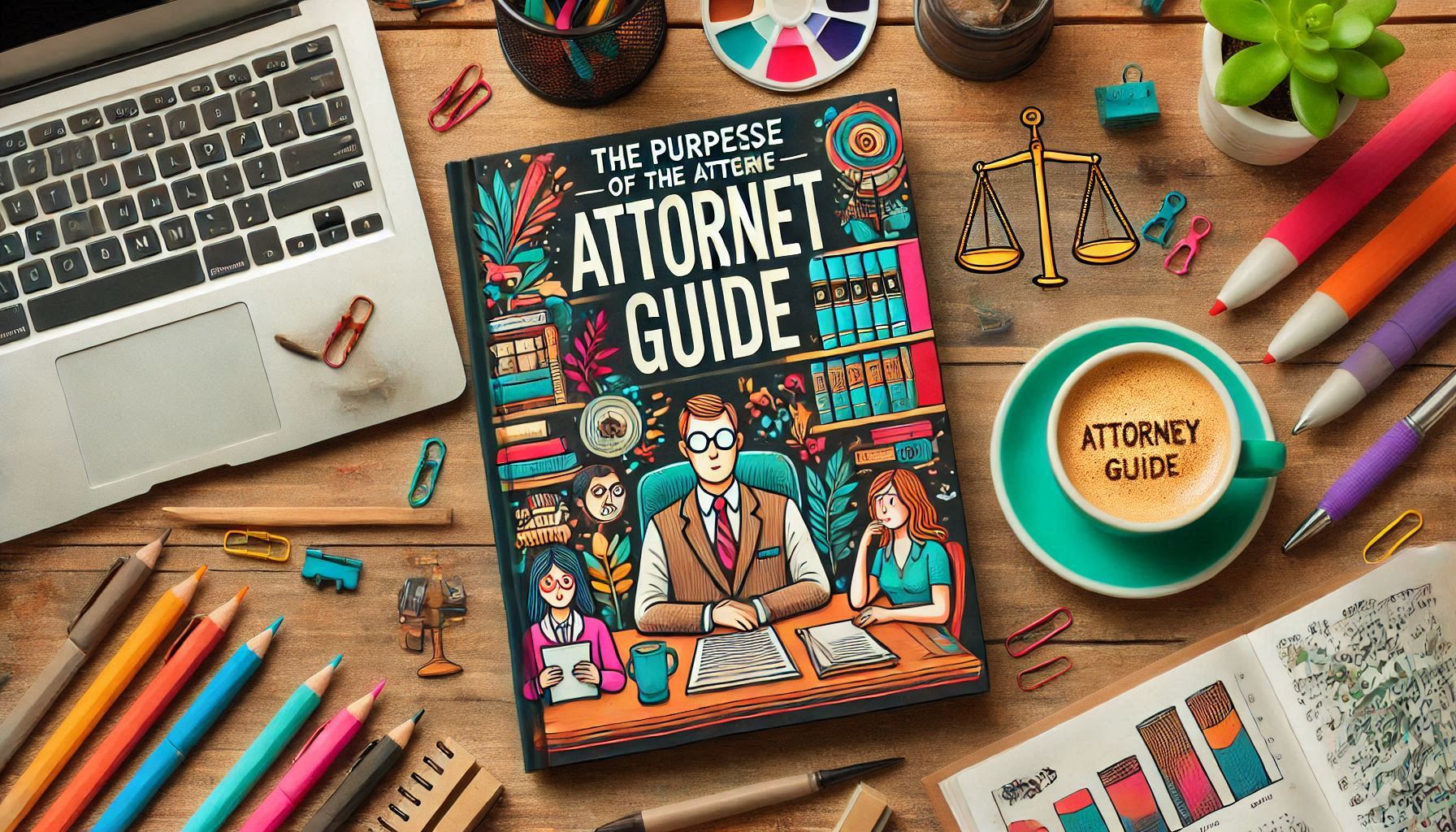Understanding the purpose of the Attorney Guide is crucial for anyone seeking legal assistance. This comprehensive resource is designed to help individuals navigate the complexities of the legal system and make informed decisions. In this blog, we delve into the various purposes and benefits of the Attorney Guide, providing an informative overview for anyone in need of legal guidance.
1. Providing Expert Legal Advice and Information
The primary purpose of the Attorney Guide is to provide expert legal advice and information to those in need. It serves as a comprehensive resource that covers various areas of law, from criminal and family law to corporate and personal injury law. By offering detailed information on different legal topics, the Attorney Guide helps individuals understand their rights and obligations, making it easier to navigate the legal system.
With the ever-evolving nature of laws and regulations, staying up-to-date with the latest legal developments can be challenging. The Attorney Guide addresses this challenge by providing accurate and timely information, ensuring that individuals have access to the most current legal advice. This empowers individuals to make informed decisions and take appropriate actions to protect their interests.
2. Helping Individuals Find the Right Lawyer
Another important purpose of the Attorney Guide is to help individuals find the right lawyer for their specific legal needs. Finding a lawyer who has the expertise and experience required to handle a particular case can be daunting. The Attorney Guide simplifies this process by offering detailed profiles of lawyers, including their areas of specialization, years of experience, and client reviews.
By providing this information, the Attorney Guide enables individuals to make informed decisions when selecting legal representation. It helps them find a lawyer who not only has the necessary skills and knowledge but also a proven track record of success in similar cases. This ensures that individuals receive the best possible legal assistance and improves their chances of achieving a favorable outcome.
3. Offering Guidance on Legal Procedures and Processes
The legal system can be complex and intimidating, especially for those who are unfamiliar with it. The Attorney Guide aims to demystify legal procedures and processes by providing clear and concise explanations. Whether it’s filing a lawsuit, attending a court hearing, or negotiating a settlement, the Attorney Guide offers step-by-step guidance on what to expect and how to proceed.
This guidance is invaluable for individuals who are navigating the legal system for the first time. It helps them understand the various stages of their case, what documentation is required, and the potential outcomes. By offering this information, the Attorney Guide reduces the stress and uncertainty associated with legal proceedings and empowers individuals to take control of their legal matters.
Additionally, the Attorney Guide provides tips and best practices for interacting with lawyers, judges, and other legal professionals. This helps individuals build effective communication and collaboration with their legal team, which is crucial for the success of their case.
4. Educating the Public on Legal Rights and Responsibilities
One of the key purposes of the Attorney Guide is to educate the public on their legal rights and responsibilities. Understanding one’s rights is essential for protecting them, and the Attorney Guide offers comprehensive information on various legal protections and obligations. This includes information on civil rights, consumer rights, employment rights, and more.
By educating the public, the Attorney Guide promotes awareness and understanding of the law. It empowers individuals to stand up for their rights and seek justice when they have been wronged. Furthermore, it helps individuals understand their responsibilities, ensuring that they comply with the law and avoid legal issues.
Education is a powerful tool for preventing legal problems before they arise. By providing clear and accessible information, the Attorney Guide helps individuals make informed decisions and avoid actions that could lead to legal complications.
5. Supporting Self-Representation and Pro Bono Legal Services
Not everyone can afford to hire a lawyer, and the Attorney Guide recognizes this by offering support for self-representation and information on pro bono legal services. For individuals who choose to represent themselves, the Attorney Guide provides detailed instructions on how to prepare and present their case, including sample documents and templates.
Self-representation can be challenging, but with the right resources and guidance, individuals can effectively advocate for themselves. The Attorney Guide offers practical tips and advice on how to handle legal proceedings without professional legal representation, helping individuals achieve the best possible outcome.
Additionally, the Attorney Guide offers information on pro bono legal services, which are provided free of charge by lawyers who volunteer their time. This ensures that individuals who cannot afford legal representation still have access to quality legal assistance. The Attorney Guide provides a list of organizations and programs that offer pro bono services, making it easier for individuals to find the help they need.
6. Promoting Access to Justice and Legal Resources
Access to justice is a fundamental right, and the Attorney Guide plays a crucial role in promoting this by providing access to legal resources. The guide offers a wealth of information, tools, and resources that are essential for navigating the legal system. This includes legal dictionaries, case law databases, and online legal forums where individuals can seek advice and share experiences.
The Attorney Guide also provides information on legal aid programs and services, which offer financial assistance to individuals who cannot afford legal representation. By promoting access to these resources, the Attorney Guide ensures that everyone, regardless of their financial situation, has the opportunity to seek justice and protect their rights.
Furthermore, the Attorney Guide advocates for legal reforms and policies that promote fairness and equality within the legal system. It provides information on ongoing legal campaigns and initiatives, encouraging individuals to get involved and support efforts to improve access to justice for all.
7. Enhancing Legal Literacy and Awareness
Legal literacy is the ability to understand and use legal information effectively, and the Attorney Guide aims to enhance this by providing clear and accessible information. Legal literacy is essential for making informed decisions, understanding legal documents, and navigating the legal system with confidence. The Attorney Guide offers a range of educational resources, including articles, videos, and interactive tools, to help individuals improve their legal literacy.
By enhancing legal literacy, the Attorney Guide empowers individuals to take control of their legal matters and advocate for their rights. It helps them understand complex legal concepts and terminology, making it easier to communicate with lawyers and other legal professionals. This, in turn, improves their ability to participate in legal proceedings and achieve favorable outcomes.
The Attorney Guide also promotes awareness of common legal issues and challenges, helping individuals recognize potential legal problems and take proactive steps to address them. This preventive approach is crucial for avoiding legal disputes and ensuring that individuals are well-prepared to handle any legal issues that may arise.


